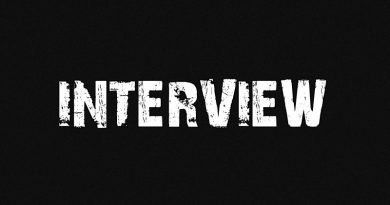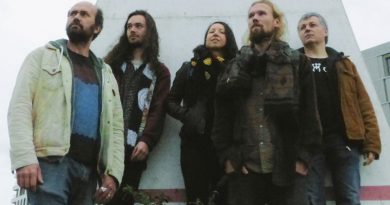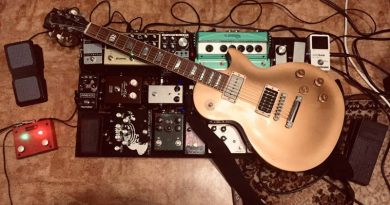Interview With Tony Reed
Tony Reed really needs no introduction. A legendary producer, studio owner, musician with the likes of Mos Generator, Stone Axe and Twelve Thirty Dreamtime (to name but a few) and label owner of Music Abuse Records. Tony has been in the business since I was in short trousers (so quite a while).
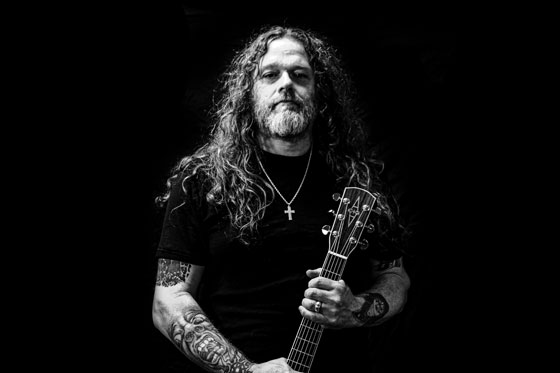
Coronavirus hasn’t hampered Tony’s work ethic, he has guested on releases by desert rock supergroup Big Scenic Nowhere as well as releasing albums from his teenage deathrock project Constance Tomb and his debut solo record Funeral Suit (out now on Ripple Music). He was kind enough to take time out from his busy schedule to answer a few questions.
Hi Tony, thanks for doing this interview and congratulations on the new album. Has it been a long held ambition to record an acoustic record?
Thank you for the interest and the support for this album and over the years. It is much appreciated. This album has been being talked about with a few different labels for the last five years so it’s great to finally have it released.
Early drafts of the album were intended to be acoustic renditions of Mos Generator songs. What was it that convinced you over time to take a different approach and record a more self-reflective standalone effort?
I had some Mos Generator tracks recorded and some other odd things in the track listing. There was a song that sounded like something on side two of Low by David Bowie. I also was going to include a cover of Burning From The Inside by Bauhaus. In the fall of 2019 I wrote five songs very quickly and those songs changed my outlook on the approach of the record and how it would be sequenced.
Those five songs were very self-reflective and were inspired by events in my life that happened throughout the year before I wrote them. Many of the lyrics on Mos Generator records over the last eight years have the same type of lyric writing. You just can’t hear them as well over the heavy rock. It’s wonderful to present this style in an acoustic environment.
Her [Joni Mitchell] writing style has taught me that it’s OK to be transparent and vulnerable. Give people the good and the bad…
A lot of musicians, such as yourself, Wino and Thomas V. Jäger (Monolord) have released acoustic records this year. What is it about the format you think appeals so much for producers of otherwise monstrously heavy music?
I’ve been writing in this style for most of my musical history. I would say I have recorded upwards of fifty acoustic songs since 1984. Some of them have been released in earlier bands or projects but the bulk of them remain in my vaults. I have made somewhat of a minor name in the heavy rock / stoner scene but that is not really the music I listen to. I tend to lean more towards music with lots of melody and hooks. At this moment I’m listening to Stereolab.
Generally, though, it’s 70s rock, power pop, soft rock and prog that I’m pulling from in all the music I write. Heavy or not. Musically, I would have to say the main influences on Funeral Suit are Nick Drake, Crosby, Stills & Nash, and Big Star (the third album in particular). A large portion of all my lyrics are influenced by Joni Mitchell. Her writing style has taught me that it’s OK to be transparent and vulnerable. Give people the good and the bad.
Moving on to another of your projects, I absolutely loved the Constance Tomb album. The tracks were recorded when you were in your late teens, are there any plans afoot to record a follow-up? If so how do you feel it would differ now that you’re older?
Actually, the songs were written in 1988 when I was 19 but I re-recorded them earlier this year. The early recordings of the songs were so raw and plagued with tape hiss that I wanted to see what they would sound like recorded and mixed the way they always sounded in my head. I performed them as close as I could to the original but with much better sound.
For fun, I put them up on bandcamp and I got a message from DHU Records asking if I wanted to do a vinyl release. Honestly, it’s possible that I’m more excited about this than anything else that I’ve released this year. It comes out on December 18th. I have already recorded ten songs for the follow up but I’m not sure how it will be released. All these songs were also written in 1988. I wrote around 30 songs that year.
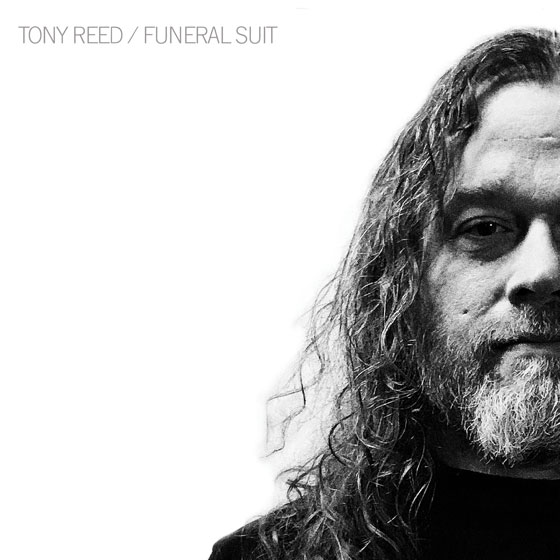
Sticking with Constance Tomb momentarily, ‘Spiritual Stairway’ bore more than a passing resemblance to TSOL for me. Parts of the track even reminded me of ‘Code Blue’. Were they on your radar or an influence at the time?
I’ve heard that from a few people and although I was aware of them, they had no influence on me at all. I would say that for Spiritual Stairway and most of the tracks on the album, the main influences were Christian Death, Bauhaus and Samhain.
A bit of shameless nostalgia on my part, when I was in my 20s I used to play Treepeople regularly on the community radio show I hosted. Could you give us an idea as to how you first hooked up with those guys? And seeing as the band were signed to C/Z at that point, did you get to tour with any of the bands from the Seattle scene?
I was a fan before I joined the band and a friend of mine was present when the original drummer, Wayne, quit the band. He rang me up immediately and I was the first person to get an audition. A few months earlier they had played a show in my town and I was the sound guy for the show. I made a recording of their set off of the board and that night they played a large portion of what would eventually be released as Guilt, Regret, Embarrassment.
GRE still hadn’t been released at the time of my audition, but I knew a bunch of songs from it. They were tripping on that. We played a show four days later. I ended up playing drums on the album Something Vicious For Tomorrow, bass on the album Just Kidding and playing guitar, vocals on the Just Kidding tour.
We usually headlined the tours we did. We played with some cool bands but mostly acts that weren’t from Seattle. I did see all of the Seattle heavy-hitters in small clubs or house parties in ’88-89.
I may sound like an ass for stating this, but I think the stoner rock movement has de-valued the impact and importance of Black Sabbath…
I am curious about your decision to cover Black Sabbath’s ‘Air Dance’ with Mos Generator. I think it’s one of their most ambitious, intriguing and underrated tunes. What attracted you to cover it as opposed to the usual fare?
I think Never Say Die is a brilliant album. It sits along in the Sabbath catalog but that might be what I like about it. Its only real downfall is that it doesn’t sound very good. I chose Air Dance because it’s a great song and a nice challenge for everybody involved and that’s what we like. We didn’t choose it for any particular release like a tribute album. We just did it because. We did do Dirty Women for a tribute album a few years back. That a great song from what I consider a terrible album (Technical Ecstasy).
I may sound like an ass for stating this, but I think the stoner rock movement has de-valued the impact and importance of Black Sabbath. I find it difficult to explain when I talk about it but it’s really frustrating to me. Many people and bands fail to recognize the complexities of the music of Black Sabbath and only focus on the top layer. Which are the riffs. Underneath those riffs lives an incredible beauty and emotion. It’s a complete musical dichotomy. I’ve spent 20 years in Mos Generator chasing that formula trying to come up with something that even comes remotely close to a song like Killing Yourself To Live. Pure heavy rock perfection.
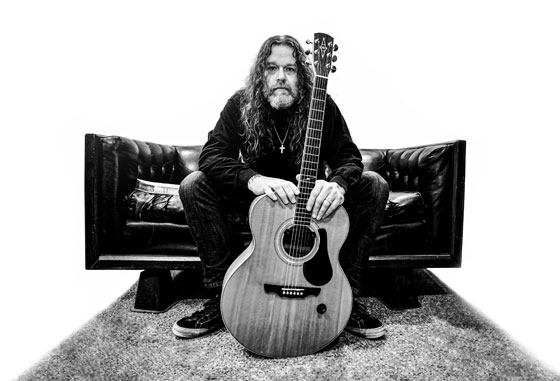
You’re well known and respected for your production work, were there any producers who first inspired you to move into this field?
I first started recording myself because I didn’t have any money and I lived in a small town in a remote area that had no studio even if we could afford it. I would have to say that the first producer I paid attention to was Martin Birch. His work with Black Sabbath, Rainbow, Iron Maiden and Blue Oyster Cult was all present in my record collection in 1982 when I first started writing and recording music. It took me quite a few years to learn how to mimic his sounds and I’m still using some of his techniques today. Other producers that have been a big influence are Steve Albini, Andy Wallace, Jack Endino, Ken Scott, Tony Visconti, and Terry Brown.
And as far as production goes, are there any artists you would love to work with but haven’t had the opportunity yet?
Most of the active bands that I’m into already have great productions. A few days ago I was talking with Raj from Once & Future Band about how he gets his snare sound. They are an amazing prog band from Oakland. Motorpsycho are also an amazing band that has great sounding records. I can’t really think of anything else at this moment. I just enjoy the process of mixing and hearing things come together. I’ve been very blessed to make this my job for past 26 years. It keeps me involved in music every day whether it’s clients or my own.
2020 has been my most prolific release year yet. Between Mos Generator, solo works, Big Scenic Nowhere and Constance Tomb, I’ve stayed very busy…
What does the future hold for Tony Reed, are there any new albums, potential tours (post-covid of course) etc on the horizon?
2020 has been my most prolific release year yet. Between Mos Generator, solo works, Big Scenic Nowhere and Constance Tomb, I’ve stayed very busy. Constance Tomb comes out December 18th and a solo split with Sergeant Thunderhoof comes out in December. We’re both doing Kate Bush songs. They do Cloudbusting and I do Sat In Your Lap. I’m a huge Kate Bush Fan so this is great!!! There are Mos Generator re-issues scheduled for next year including a three LP deluxe box set of our 2005 album The Late Great Planet Earth. As far as touring goes, we had something in the works for Europe in May 2021 but I’m not sure if it’s gonna work out.
Finally, I always like to conclude with a light-hearted question. I follow you on Instagram and saw that you’re a Bowie fan. Which album is your favourite (mine is ‘Space Oddity’) and were ‘Tonight’, ‘Never Let Me Down’ and ‘Tin Machine’ really that bad?
Mine switches from time to time but I would have to say it’s The Man Who Sold The World. It’s a very dark album that retains its feel all the way through. It’s also one of the first Bowie albums I got when I started exploring him as a teenager (thanks to Bauhaus). Tonight, Never Let Me Down and Tin Machine were unfortunately products of their era. The 80s and early 90s was a time of serious overproduction with no concern for raw energy or spontaneity. I would really like to hear those records with a different approach.
Thanks Tony for answering our questions, his debut solo acoustic album Funeral Suit, as part of their Blood And Strings series, is out now via Ripple Music.
Label: Ripple Music
Band Links: Facebook | Bandcamp | Instagram
Interviewed by: Reza Mills

